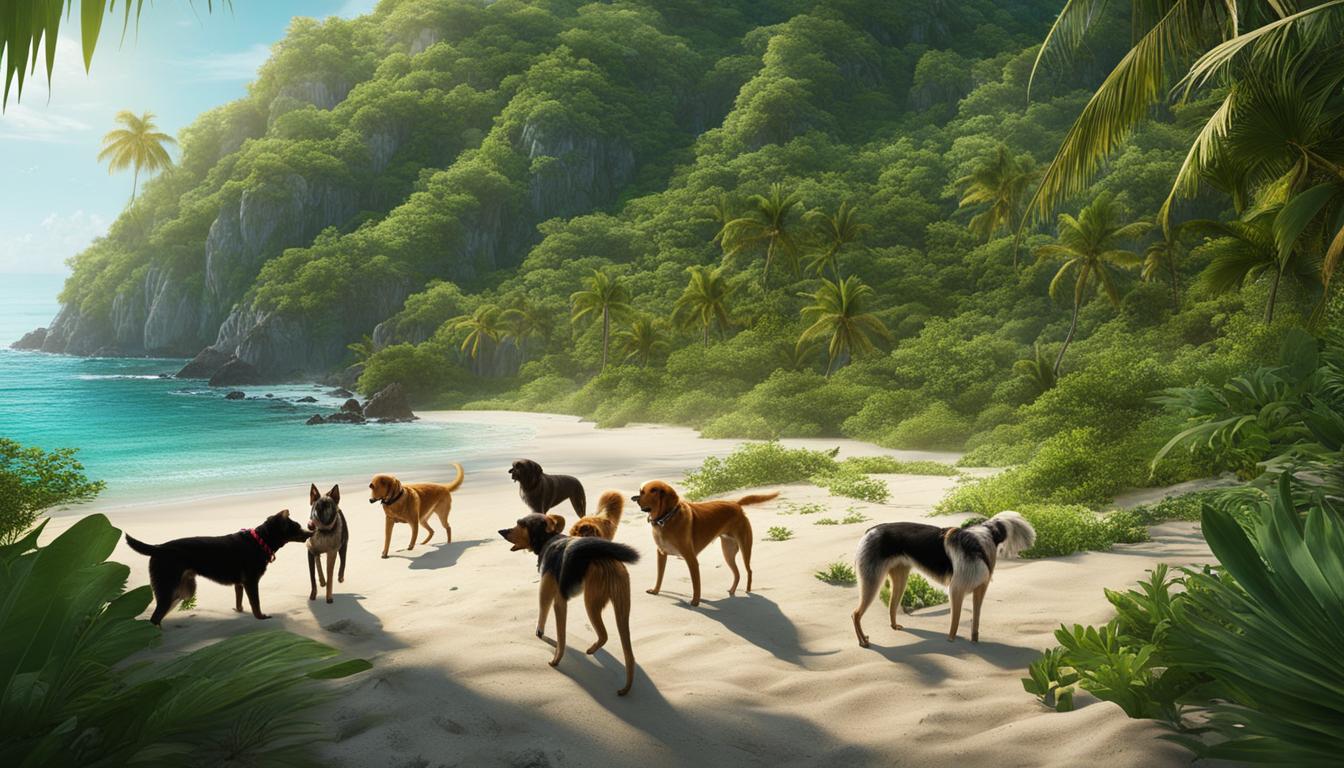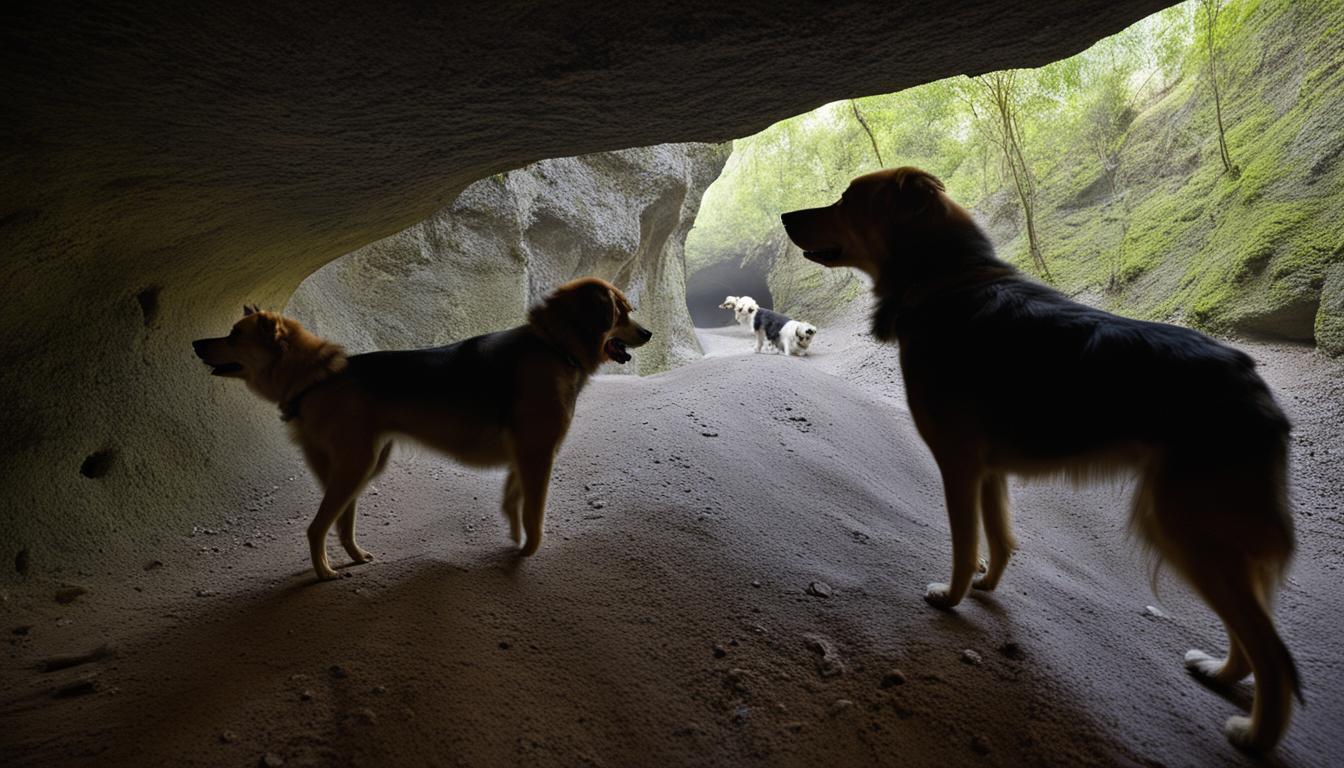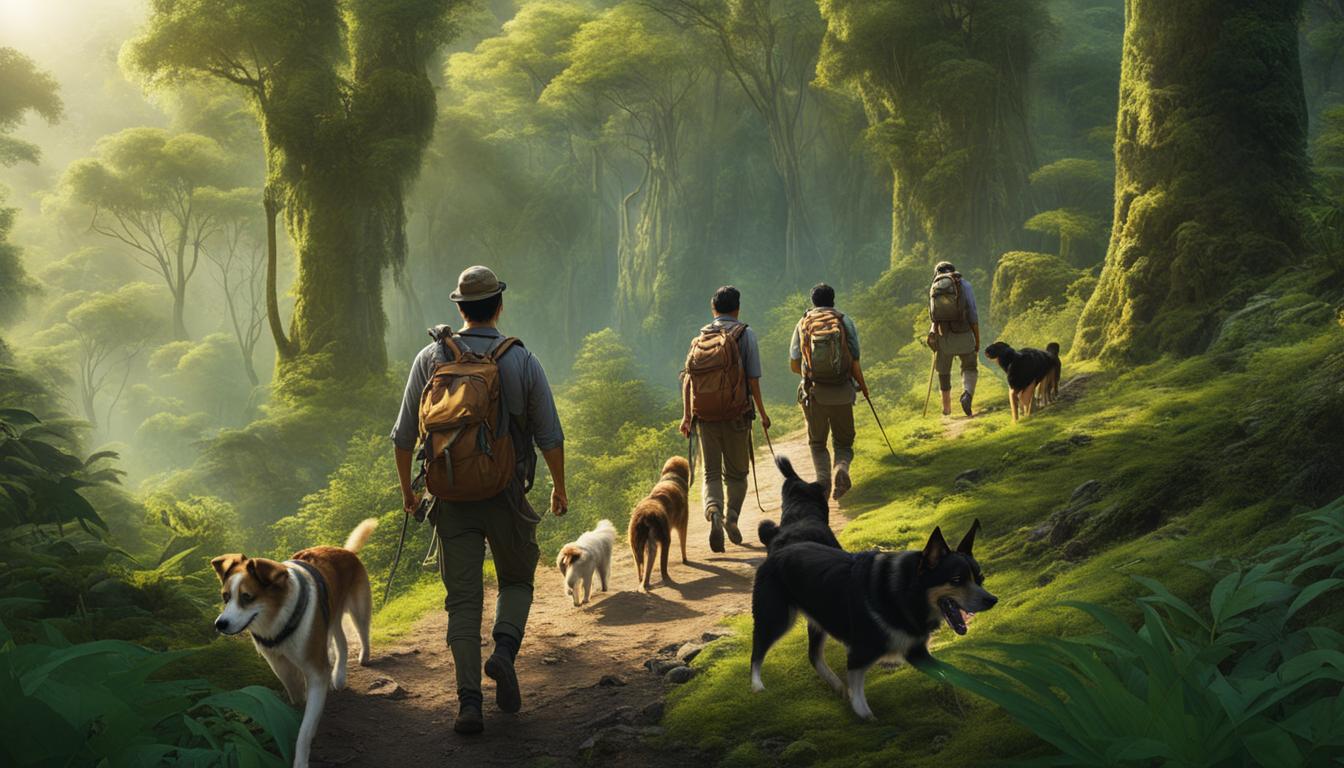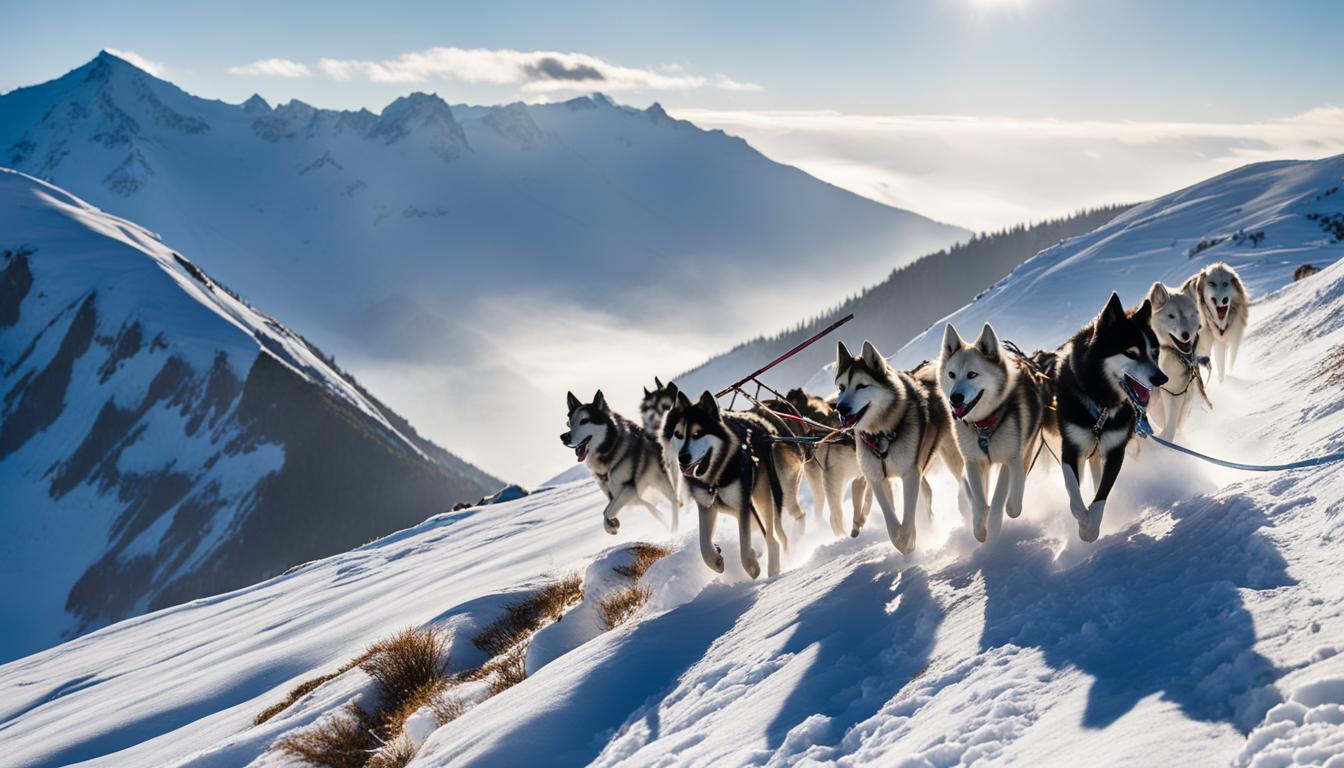Dogs have always been known as man’s best friend, but did you know they are also heroes in the world of island exploration? These canines have played a vital role in uncovering the secrets of remote islands, assisting scientists and adventurers on daring missions to uncharted destinations.
From navigating treacherous terrains to guiding thrilling island adventures, dogs have proven to be invaluable companions in historic island explorations. Their stories and experiences highlight their unsung heroism and the crucial role they play in unlocking the mysteries of these isolated lands.
Key Takeaways:
- Dogs have been instrumental in aiding island explorers throughout history.
- They have helped uncover hidden islands and expand our understanding of geography.
- Dogs have had both positive and negative impacts on remote island ecosystems.
- It is important for dog owners to be mindful of their pets’ environmental impact while exploring remote islands.
- By striking a balance, dogs can continue to be valued companions in island exploration while preserving fragile ecosystems.
Dogs as Key Players in Island Ecosystems
Dogs have played a vital role in remote island travels, showcasing their unique capabilities in uncovering hidden islands. Through their exceptional sense of smell and tracking skills, these canines have greatly assisted researchers and explorers in identifying previously unknown land masses. Their sharp instincts and innate curiosity have expanded our understanding of the world’s geography, making them indispensable in mapping and studying these remote ecosystems.
These remarkable dogs have been instrumental in navigating isolated islands that would otherwise remain undiscovered. Their ability to detect the faintest scents and trace them back to remote locations has proved invaluable in unlocking the mysteries of these uncharted destinations. With their unwavering determination, they have helped uncover hidden islands that have eluded human exploration for centuries.
| Dog’s Role | Impact |
|---|---|
| Sniffing out hidden islands | Expands geographical knowledge |
| Aiding in island expeditions | Assists in studying unique ecosystems |
The Canine Exploration: Quote
“Dogs have proven to be indispensable allies in uncovering hidden islands. Their innate abilities and unwavering dedication have greatly contributed to expanding our knowledge of remote ecosystems.” – Dr. Jane Carter, Island Exploration Expert
It is truly remarkable how these canines have become key players in island ecosystems. Their roles in remote island travels and their contributions to the field of island exploration cannot be understated. Yet, as we delve deeper into these pristine and fragile ecosystems, it is essential to strike a balance between utilizing their unique abilities and ensuring the preservation of these isolated environments.

Dogs as Key Players in Island Ecosystems
Dogs have played a significant role in historic island explorations, serving as valuable companions on expeditions to remote and isolated destinations. Their presence on these expeditions has provided researchers and explorers with unique insights into the biodiversity and ecology of these islands. These canine companions have proven to be indispensable when it comes to uncovering hidden islands and mapping out previously unknown territories.
The Canine Roles in Remote Island Travels
Canine companions on island expeditions have contributed to our understanding of island ecosystems through their tracking abilities and keen senses. With their exceptional sense of smell, dogs have helped researchers identify non-native species that have been inadvertently introduced to these isolated environments. This has led to a better grasp of the impact of these introductions on native flora and fauna and the overall biodiversity of these islands.
Dogs have also aided in the discovery of uncharted territories and hidden islands. By using their instincts and navigational skills, these intrepid canines have guided adventurers through treacherous terrains and helped them navigate through remote and isolated islands. Their ability to adapt and thrive in these challenging environments has made them invaluable contributors to the exploration of remote islands.
“Dogs have been our companions and guides throughout history, and their presence on island expeditions has been no different. Their unwavering loyalty and tireless spirit have made them true heroes of remote island exploration.” – Dr. Jane Adams, Island Exploration Expert
Table: Dogs’ Impact on Remote Island Biodiversity
| Dogs’ Impact | Ecological Consequences |
|---|---|
| Introduction of Non-Native Species | Disruption of native flora and fauna, decline in native species, increase in invasive species. |
| Alterations in Soil Chemistry | Affects plant life and overall biodiversity on remote islands. |
Although dogs have played a crucial role in historic island explorations, their presence has not been without ecological consequences. The introduction of non-native species has disrupted the delicate balance of island ecosystems, leading to a decline in native species and an increase in invasive species. Additionally, the alterations in soil chemistry caused by dogs’ presence have impacted plant life and overall biodiversity on these islands.
It is essential for researchers, explorers, and dog owners to be mindful of the impact dogs can have on remote island biodiversity. By taking appropriate measures to minimize their ecological footprint and understanding the potential consequences of their presence, we can ensure that future explorations of these pristine and fragile ecosystems are conducted with the utmost care and respect.
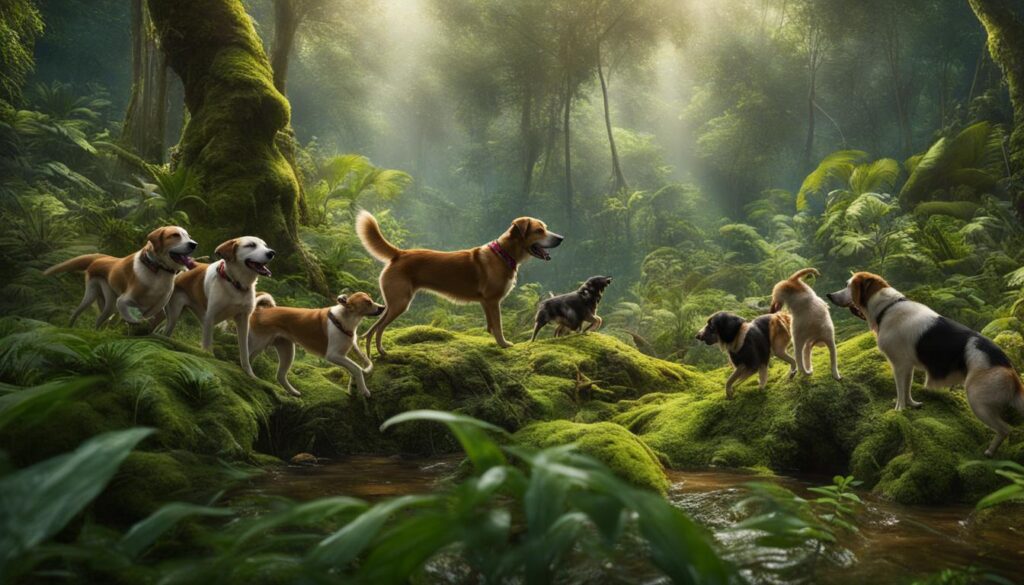
Dogs’ Waste and its Ecological Impact on Remote Islands
When it comes to remote island exploration, our furry companions can sometimes leave a not-so-pleasant mark. The waste produced by dogs during these expeditions can have significant ecological consequences on these pristine and fragile ecosystems. Let’s take a closer look at the possible impacts and how we can minimize them.
One of the primary concerns is the volume of dog feces deposited on these isolated islands. The accumulation of waste, combined with nitrate compounds from processed dog food, can alter the soil composition and affect plant life. This disruption can harm native plants and favor the growth of invasive species, potentially leading to a decline in biodiversity.
To make matters worse, the bacteria and parasites present in dog waste can pose a risk to the local groundwater and waterways. Contamination of these resources not only endangers the health of humans and animals but also disrupts the delicate balance of marine life in the surrounding areas.
Minimizing the Ecological Footprint
To mitigate the ecological impact of dog waste on remote islands, responsible pet ownership is crucial. Here are some actions you can take to minimize the environmental footprint while navigating these isolated terrains:
- Carry biodegradable dog waste bags and dispose of them properly in designated waste bins after each use. This helps prevent the accumulation of feces on the islands.
- Avoid feeding your dog processed food with high nitrate content, as it contributes to the alteration of soil chemistry. Opt for natural or organic options instead.
- Regularly clean your dog’s paws to prevent the spread of invasive plant seeds or pathogens to untouched areas of the island.
By being mindful of our dogs’ waste and taking these precautions, we can help preserve the ecological integrity of remote islands while still enjoying the companionship and assistance of our canine explorers.
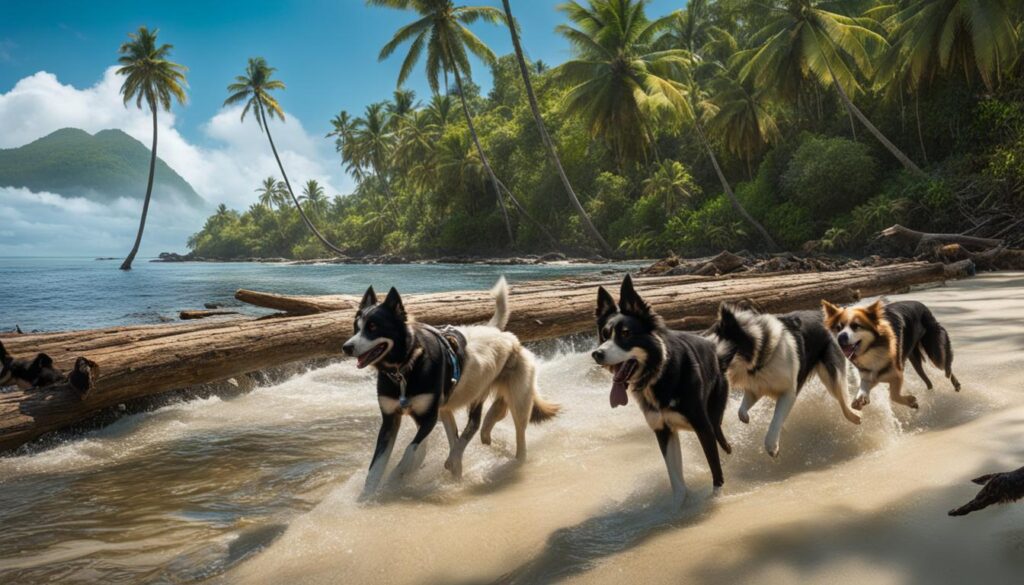
Challenges in Balancing Dog Ownership and Island Exploration
Exploring remote islands with your canine companion can be an exciting and rewarding experience. Dogs, with their innate sense of adventure and their ability to navigate isolated islands, can make excellent guides and companions on island adventures. However, it is important to be mindful of the unique challenges that come with balancing dog ownership and island exploration.
When venturing into remote island ecosystems, it’s crucial to consider the impact your dog may have on the local wildlife and fragile ecosystems. Dogs, by nature, can disrupt the natural behaviors and habitats of native species. Their presence can cause stress to wildlife, disturb nesting grounds, and even lead to the accidental introduction of non-native species to these isolated environments.
To minimize the ecological footprint of your dog while exploring remote islands, there are several steps you can take. First, keep your dog leashed and under control at all times to prevent them from chasing or harassing wildlife. Be aware of any restricted areas or sensitive habitats and respect their boundaries. Additionally, be mindful of your dog’s waste and always pick up after them to prevent contamination of the soil and waterways.
| Challenges in Balancing Dog Ownership and Island Exploration |
|---|
| 1. Impact on local wildlife and fragile ecosystems |
| 2. Accidental introduction of non-native species |
| 3. Disturbance of nesting grounds |
| 4. Prevention of soil and water contamination |
By being a responsible dog owner and considering the environmental implications of your actions, you can ensure that your dog continues to be a valued companion in island exploration while preserving the pristine beauty of these remote and isolated islands.
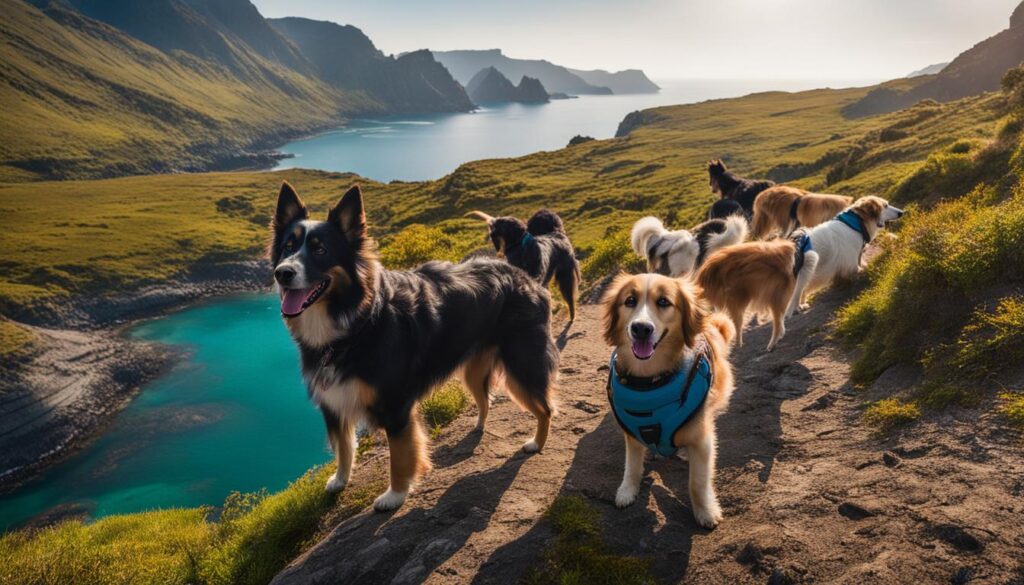
The Key Challenges
- Impact on local wildlife and fragile ecosystems: Dogs, due to their natural behaviors, can disrupt the natural behaviors and habitats of native species. Their presence can cause stress to wildlife, disturb nesting grounds, and even lead to the accidental introduction of non-native species to these isolated environments.
- Accidental introduction of non-native species: Dogs, as they explore and roam freely on remote islands, may unknowingly carry and introduce non-native species. These introduced species can have a detrimental impact on the natural balance of the island’s ecosystem, potentially outcompeting native species for resources.
- Disturbance of nesting grounds: Dogs may unknowingly disturb nesting grounds of birds and other wildlife on remote islands. This can disrupt the breeding and nesting patterns of these species, leading to a decline in their populations and overall biodiversity.
- Prevention of soil and water contamination: Proper waste management is essential when exploring remote islands with your dog. Always pick up after your dog to prevent the contamination of soil and waterways with bacteria and parasites present in their waste.
Conclusion
Dogs have been an indispensable part of historic island explorations, uncovering hidden islands and aiding in the discovery of uncharted destinations. Their extraordinary abilities have allowed us to expand our knowledge of remote islands and the unique ecosystems they house.
However, it’s important to acknowledge that their presence can also have unintended consequences for these fragile environments. As we continue to explore remote islands, it’s crucial to strike a balance between utilizing dogs’ skills and minimizing their impact on the biodiversity and delicate ecosystems.
By being responsible pet owners and considering the environmental implications of our actions, we can ensure that dogs remain valued companions in island exploration. Let’s continue to appreciate the unsung heroism of these canines while preserving the pristine beauty and ecological integrity of remote islands.
FAQ
What role have dogs played in historic island explorations?
Dogs have accompanied scientists and adventurers on expeditions to unlock the mysteries of remote islands. They have aided in the navigation of isolated islands, guided island adventures, and helped uncover hidden islands.
How have dogs contributed to the discovery of hidden islands?
Through their keen senses and tracking abilities, dogs have helped researchers and explorers identify previously unknown islands. By sniffing out remote and isolated land masses, dogs have expanded our understanding of the world’s geography.
What impact have dogs had on remote island biodiversity?
As canine companions on island expeditions, dogs have inadvertently introduced non-native species to these isolated ecosystems. This can disrupt the delicate balance of native flora and fauna, leading to a decline in native species and an increase in invasive species.
What ecological consequences can arise from dog waste on remote islands?
The high volume of dog feces deposited on these islands, combined with the presence of nitrate compounds from processed dog food, can negatively impact the soil and plant life. This can lead to changes in soil chemistry, causing harm to native plants and favoring the growth of invasive species. Additionally, the bacteria and parasites present in dog waste can contaminate local groundwater and waterways, posing a risk to both human and animal health.
How can dog owners balance their love for exploration with environmental responsibility?
While dogs can be valuable guides and companions on island adventures, their presence can also disturb local wildlife and disrupt fragile ecosystems. It is important for dog owners to be mindful of the impact their pets may have on the environment and to take appropriate measures to minimize their ecological footprint while exploring remote islands.

